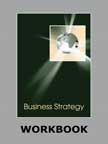Starbucks' Success Story in China




|
|
ICMR HOME | Case Studies Collection
Case Details:
Case Code : BSTR306
Case Length : 23 Pages
Period : 1998-2008
Pub Date : 2009
Teaching Note :Not Available
Organization : Starbucks Corporation
Industry : Coffee Retailing
Countries : China
To download Starbucks' Success Story in China case study
(Case Code: BSTR306) click on the button below, and select the case from the list of available cases:

Price:
For delivery in electronic format: Rs. 400;
For delivery through courier (within India): Rs. 400 + Rs. 25 for Shipping & Handling Charges
» Business Strategy Case Studies
» Business Strategy Short Case Studies
» View Detailed Pricing Info
» How To Order This Case
» Business Case Studies
» Case Studies by Area
» Case Studies by Industry
» Case Studies by Company
Please note:
This case study was compiled from published sources, and is intended to be used as a basis for class discussion. It is not intended to illustrate either effective or ineffective handling of a management situation. Nor is it a primary information source.
|
|
<< Previous
Introduction Contd...
|
Some analysts were of the view that the company had decided
to take this step in order to avoid the high import tariffs, ranging from 20% to
60%, which it had to pay on importing coffee.
However, Caren Li, Shanghai-based
Spokeswoman of Starbucks China, dismissed this view and said that the prime
objective of this step was to add some new flavors to the existing menu.4
Starbucks, one of the largest coffee chains in the world, was started in 1971,
at Seattle, USA, by three entrepreneurs who were inspired by the European
culture of drinking coffee.
|
|
Initially, the company only sold coffee beans and coffee making equipment but not any ready to drink beverages.
|
|
The idea of a coffee house as a place for drinking
coffee and socializing was brought up in the company only in the early
1980s, with the coming of Howard Schultz (Schultz) as the marketing head
of the company.
In 1987, Schultz bought the company from the founders. From then, he set
the company on a new trajectory of growth and development. Very soon,
the stores expanded to all regions of the country.
By the early 1990s, Schultz realized that the US market would soon
saturate and started looking for opportunities in the non-US markets... |
Excerpts >>
|


